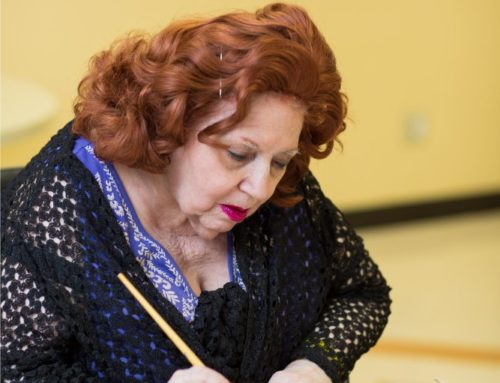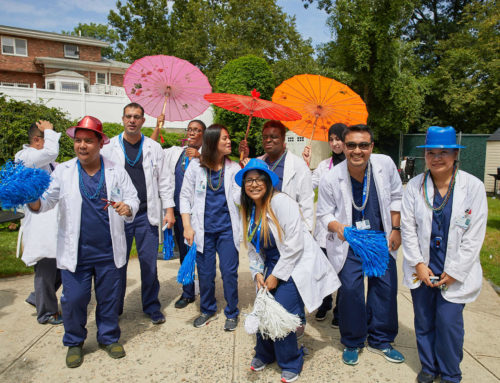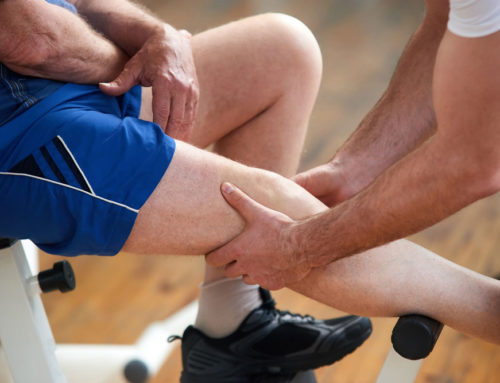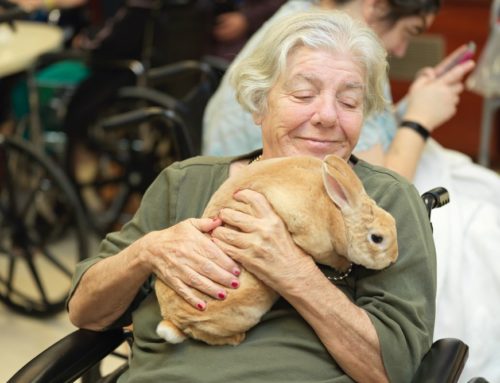Few Simple Ways to Improve Memory in the Elderly
It’s always possible to improve memory, even if you are elderly and have suffered memory loss. So don’t despair! Memory loss can be very frustrating both for the person whose memory is impaired and for loved ones. It can prevent you from interacting normally with other people and lead to social isolation. You need to understand the condition and learn what can be done to improve memory.
Fairview Rehab & Nursing Home in Queens, NY, has excellent facilities and staff experienced in dealing with clients who have suffered various degrees of memory loss. Our memory care program involves a range of social and therapeutic recreation activities as well as cognitive and rehab therapy to keep our patients active and engaged.
We’ve all seen elderly people forget names or misplace their keys. That kind of age-related memory loss is easily manageable and doesn’t really affect one’s social life.

However, the causes of progressive or serious memory loss need to be diagnosed by a doctor. Usually, such memory loss is caused by one kind of dementia or another, Alzheimer’s being the most common type.
There is also an intermediate stage of memory loss, called mild cognitive impairment. In this condition you can still look after yourself adequately and enjoy a normal social life.
Ways to improve memory
There are a range of treatments and therapies that can help improve memory. And the treatment and care your doctor recommends will be based on an examination and your medical history. The following are activities to help you with memory issues.
- Staying physically active
Regular exercises can help enormously. Consider doing them daily. Exercises can greatly improve your overall well-being. Physical and mental well-being are connected, and memory can be improved by careful physical exercise.
- Staying mentally active
Entertainment and social activities stimulate the brain, and can make you feel good about yourself and the world. Taking a healthy meal in a convivial setting with friends or acquaintances is a great way to activate the brain. This helps enormously to improve your memory. Singalongs are very popular in some old people’s homes. People join in and remember the good old days. Games, quizzes and shows all stimulate the brain and get you talking. Articulating words and interacting with others is a great way to stem memory loss.
- Healthy diet
Memory can be boosted by adhering to a healthy diet, but it’s important not to overeat. Overeating has been shown to be associated with memory loss.
- Regular sleep
A good night’s sleep is highly beneficial for overall health and to improve memory. Your doctor may prescribe medication to help with this.
- Trying something different
Try a new dish or do something you wouldn’t normally do. Meet new people. Doing new things can spark the brain cells into action and can be beneficial.
Do a crossword or a sudoku puzzle. Try to learn, or improve your skills in, a new language. Challenge yourself to learn something new. Stretching your brain can do wonders for keeping you mentally flexible and to improve memory.
Managing stress
If you are stressed, your overall health can suffer and your energy and brain activity can wane. Chronic stress or anxiety releases hormones that decrease the brain’s ability to use glucose for energy. So, if you can find things to do that sooth you, do them!
- Engage with family and friends
Family and friends can help dementia sufferers to continue their daily routines and social contacts. They can remind them of the old days and old friends and relatives. They can keep them interested and up to date on what close relatives are doing. All this helps stimulate the brain and reduce memory loss.
No one wants to lose fond memories they may have of personal moments in their life. Contact us today if you would like to help your loved one to improve memory.
This article contains informational and educational materials and does not replace health or medical advice. For questions or concerns regarding your medical condition or health objectives, speak to a qualified physician or healthcare provider.






Leave A Comment